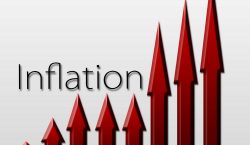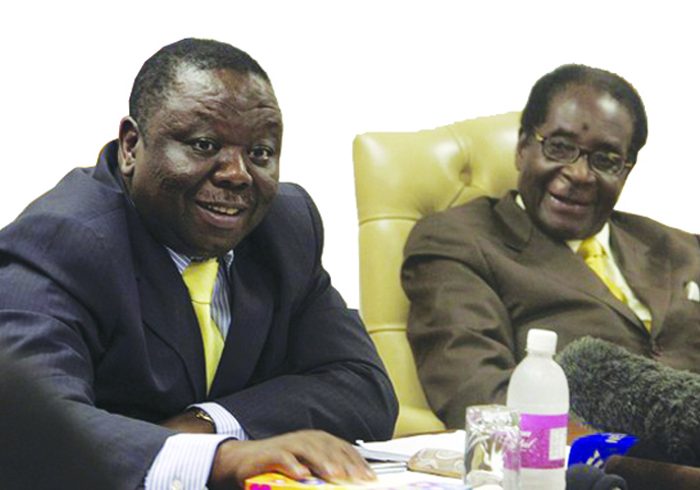


AS Zimbabweans go to the polls on Wednesday, the battle of the titans will once again be between President Robert Mugabe and Prime Minister (PM) Morgan Tsvangirai who may not meet again in any such contest after this crucial poll, The Financial Gazette can report.
This is the third time inside 11 years that President Mugabe and the Movement for Democratic Change (MDC-T) leader are locking horns in an election.
The first was in 2002 when the ZANU-PF leader won by about 400 000 votes in a tightly contested poll. In 2008, PM Tsvangirai outpolled the incumbent in the first round of voting but could not achieve the threshold required to be declared winner. A run-off that followed was won by President Mugabe after the MDC-T leader pulled out citing politically-motivated violence against his supporters.
The acrimony that followed the one-man election ended after continental and regional powerbrokers invited to mediate in the dispute negotiated a power-sharing arrangement between ZANU-PF and the two MDC formations which, combined, had won the majority of seats in Parliament.
Unlike the previous polls which were marred by incidences of violence, the forthcoming election is essentially being fought on four fronts namely the economy, ideology, history and personalities.
The economy has been the major rallying point in the wake of widespread company closures and job losses triggered by a cash crisis caused by the country’s failure to stimulate production and attract foreign direct investment.
ZANU-PF, in power since 1980, has pitched its campaign on indigenisation and economic empowerment to redress historical imbalances: In 2000 and 2002, the party went into battle with the then united MDC riding on the land reforms.
The MDC-T is rallying support around job creation, hoping to appeal to the youths who make up the bulk of the unemployed. As was the case in 2000 and 2002, the MDC-T has not abandoned its call for “change”.
The battle cry for the other formation of the MDC led by Welshman Ncube revolves around devolution, which got partial expression in the new Constitution signed into law in May.
Campaigns have also been reduced to personalities principally that of President Mugabe and PM Tsvangirai whereby the MDC-T is pointing to President Mugabe’s age, saying he should retire, while ZANU-PF has re-opened PM Tsvangirai’s festering wounds inflicted by his sex scandals and some of his bleeps and blunders during the sustenance of the inclusive government.
Regarding ideology, ZANU-PF has had a field day by exposing the MDC-T’s doublespeak as the party tries to placate alliance partners from different ideological backgrounds.
Underpinning all this is the history of the parties thus far.
After under a month of intense campaigning, it is quite clear that the battle would once again be between ZANU-PF and the MDC-T, with the clash between President Mugabe and the premier being the highlight.
This could be the last time the two nemeses are meeting in the ring. At 89, President Mugabe will be 94 come the next election hence he might want to retire should he succeeds in uniting his party to concentrate on writing his memoirs. For PM Tsvangirai, there are various factors at play diminishing prospects of him remaining at the helm of the party after the next five years whether or not he wins this election.
Since 1999, when the MDC was formed, the party has elevated its campaign around “change”, a message that resonated well with the masses at the height of the economic meltdown when the party benefited from the protest vote.
Until they joined the inclusive government in February 2009, the MDC-T had used the economic crisis to demonstrate how ZANU-PF had failed to manage the country’s affairs.
Other themes that came in handy for the party’s “regime change” campaign included corruption in ZANU-PF and the need to reverse legislation seen as curtailing the advancement of human rights.
At the time, ZANU-PF’s defence had been to blame the crisis on sanctions imposed on President Mugabe’s administration by the west and its allies “at the invitation of the MDC” although this found few takers as evidenced by the outcome of the 2008 elections when the party lost its majority in Parliament for the first time since independence.
But the tables have been turned.
The MDC-T has found itself on the ropes not only against some of its alliance partners unhappy with how the party’s leadership has fallen for the trappings of power but the generality of Zimbabweans as well who are beginning to question its values.
The biggest undoing for the MDC-T has been widespread corruption in councils under its dominion and its failure to end the rot. A leadership code the party had planned to introduce about two years ago suffered a stillbirth as some of its officials amassed wealth in typical from rags to riches story.
PM Tsvangirai’s sex scandals could not help matters and so was his backing for gay rights in an interview with BBC, an abomination in Zimbabwe’s largely Christian society.
The four years the MDC-T has been in power have also led some people to question whether the party has the capacity to run a complex administration, especially at a time when a lot is needed to turnaround the country’s economic fortunes.
This has somewhat diminished the party’s influence in urban areas where it has enjoyed support since 2000 while changing public discourse from the elections being about “change” to being about “issues”.
Trevor Maisiri, a senior analyst with the International Crisis Group, this week agreed that the election was no longer about removing President Mugabe from power but policy issues and the capacity of the parties to deliver on promises.
He said: “As much as it was about that in the previous elections, this time around Zimbabweans appear more hungry for the development of their country and are going to pay attention to policy issues and capacity of the parties and candidates to deliver the development agenda”.
In his contribution to the debate on elections, Davison Gomo, a lawyer, said Zimbabweans must take full responsibility for their country and must pursue a political programme and development agenda that addresses fully the needs of people by opening up the economy and all the benefits that come with it to the indigenous people.
“The outcome of the election process must allow Zimbabweans to be parents of the resultant government and thus ensuring that Zimbabwe goes back to SADC (the Southern African Development Community) as an equal partner and not a problem child. We equally can no longer accept the self-appointed role in which the Europeans and Americans practically want to instruct Zimbabweans to produce a result that suits a given specification even if this was not in our national interest”.
Analysts tipped President Mugabe and his ZANU-PF to win the forthcoming election because the plan they adopted upon joining the unity government has remained on course so far unlike the MDC-T which has been reacting to the chain of events as dictated by their rivals.
Throughout the lifespan of the inclusive government, ZANU-PF made sure that no single reform was realised regardless of pressure from its rivals in the Government of National Unity and from SADC, which insisted on same at its Maputo, Mozambique summit held on June 15.
By not acceding to the reforms, the party maintained its grip on the public media and the security apparatus, thereby enjoying an unlevel political playing field. It has also kept its ties with traditional leaders and the war veterans who campaign for the party on the ground.
This view by analysts is in line with several recent surveys from the likes of Mass Public Opinion Institute, Freedom House, UK Virgil and Afrobarometer that also pointed to a ZANU-PF victory.
While bookmakers had not given President Mugabe a chance to endure the rigors of an election on the basis of his age, the incumbent has surprised even some of his peers by acting younger than his age.
Since hitting the campaign trail, he has not shown signs of fatigue, at times standing on the podium for more than two hours.
The fact that the so-called grand coalition of ZANU-PF’s rivals has also failed to materialise, has meant that the opposition is once again going into the elections fragmented.
The Diaspora vote, which could have helped ZANU-PF’s rivals, was also shot down even under the new Constitution.
Both parties are, however, going into the elections raven by divisions, which were apparent during their primary elections.
To their credit, the campaigns have been peaceful.
President Mugabe has been at the forefront in calling for peaceful elections, a message that is being echoed by his rival, PM Tsvangirai.
Both leaders have not missed the opportunity to denounce violence since they took to the campaign trail.
The message appears to have sunk among their supporters who can be seen at funerals and other public places mingling freely, while wearing their party regalia without any incidence at all. In this regard, Zimbabweans have shown incredible maturity hence the thumbs up they have received from SADC, the African Union and the international community for conducting peaceful harmonised elections and for maintaining the peace thus far.
The slogan credited to vice president John Nkomo, now late, which goes like this “peace begins with me, peace begins with you and peace begins with all of us,” has been a major rallying point for all political parties although observers suggest that whoever wins the forthcoming poll has to show maturity and magnanimity by including some from the losing parties into government in order to unite Zimbabweans.